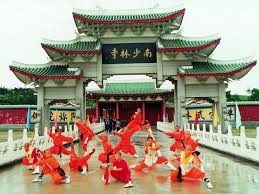China’s famous Shaolin Temple has decided to invest in a modernized Buddhism practice center as well as a four-star hotel in Australia, provoking criticisms about the commercialization of the discipline originally associated with simple living.
In the wake of their extra effort in expanding their reach, the management of China's Shaolin Temple have decided to build some commercial establishments in Shoalhaven City located in the Land Down Under which are estimated to cost around AU$360 million or equivalent to $281.2 million.
However, news about this "expansion" plan seemed to invoke negative opinion from the public since Shaolins, who are more popularly known for their strict Buddhist beliefs, have been associated with modest lifestyle.
Several media outlets rushed into judgment, declaring that the martial arts celebrity is taking advantage of its popularity and is trying to "cash it out," with some even calling for the state government of China to intervene.
In defense, Shi Yongxin, principal abbot of Shaolin Temple, explained that the investment made would be paid using donations from their followers and that the temple would only manage the practice center.
This issue, according to China Daily's Li Xiangping, had ignited a conflict in the concept of Buddhism and religion as a whole.
As it is common knowledge that religious institutions, like all other civil organizations, need to cover their running cost in some way which, in the case of the Chinese temples, had been in the form of ticket sales.
Aside from that, other religious institutions even sell merchandise related to their particular belief to add revenue, which would later be used to maintain their temples and feed their monks.
But this does not go without problems such as conflict when it comes to taxes, whereas temples are registered as non-profit organizations; hence, they are not required to pay their taxes provided that donations they receive would be used for "public benefit, not for personal gain."



























